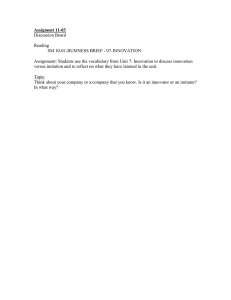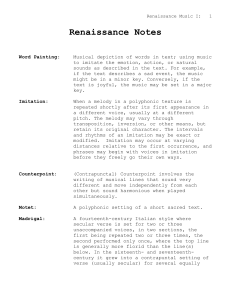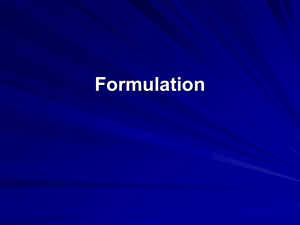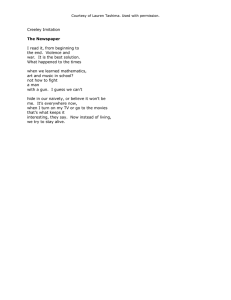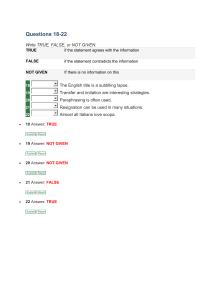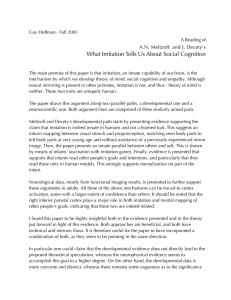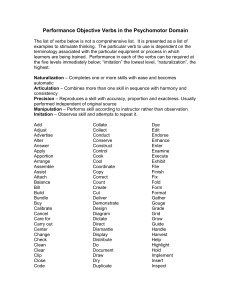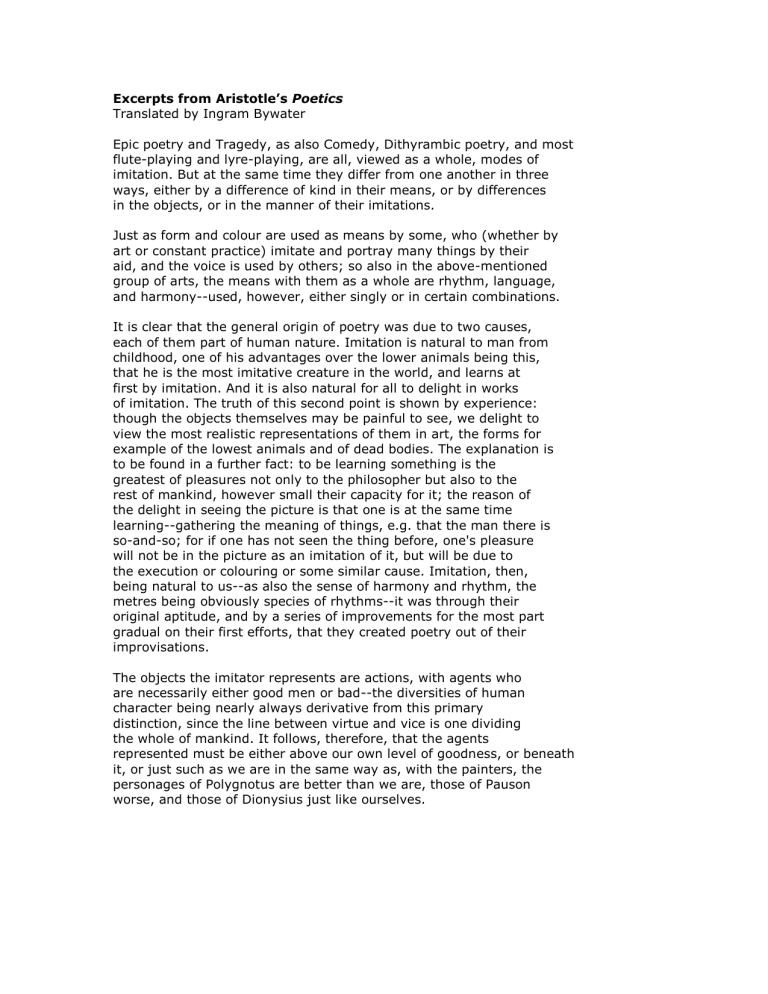
Excerpts from Aristotle’s Poetics Translated by Ingram Bywater Epic poetry and Tragedy, as also Comedy, Dithyrambic poetry, and most flute-playing and lyre-playing, are all, viewed as a whole, modes of imitation. But at the same time they differ from one another in three ways, either by a difference of kind in their means, or by differences in the objects, or in the manner of their imitations. Just as form and colour are used as means by some, who (whether by art or constant practice) imitate and portray many things by their aid, and the voice is used by others; so also in the above-mentioned group of arts, the means with them as a whole are rhythm, language, and harmony--used, however, either singly or in certain combinations. It is clear that the general origin of poetry was due to two causes, each of them part of human nature. Imitation is natural to man from childhood, one of his advantages over the lower animals being this, that he is the most imitative creature in the world, and learns at first by imitation. And it is also natural for all to delight in works of imitation. The truth of this second point is shown by experience: though the objects themselves may be painful to see, we delight to view the most realistic representations of them in art, the forms for example of the lowest animals and of dead bodies. The explanation is to be found in a further fact: to be learning something is the greatest of pleasures not only to the philosopher but also to the rest of mankind, however small their capacity for it; the reason of the delight in seeing the picture is that one is at the same time learning--gathering the meaning of things, e.g. that the man there is so-and-so; for if one has not seen the thing before, one's pleasure will not be in the picture as an imitation of it, but will be due to the execution or colouring or some similar cause. Imitation, then, being natural to us--as also the sense of harmony and rhythm, the metres being obviously species of rhythms--it was through their original aptitude, and by a series of improvements for the most part gradual on their first efforts, that they created poetry out of their improvisations. The objects the imitator represents are actions, with agents who are necessarily either good men or bad--the diversities of human character being nearly always derivative from this primary distinction, since the line between virtue and vice is one dividing the whole of mankind. It follows, therefore, that the agents represented must be either above our own level of goodness, or beneath it, or just such as we are in the same way as, with the painters, the personages of Polygnotus are better than we are, those of Pauson worse, and those of Dionysius just like ourselves.
